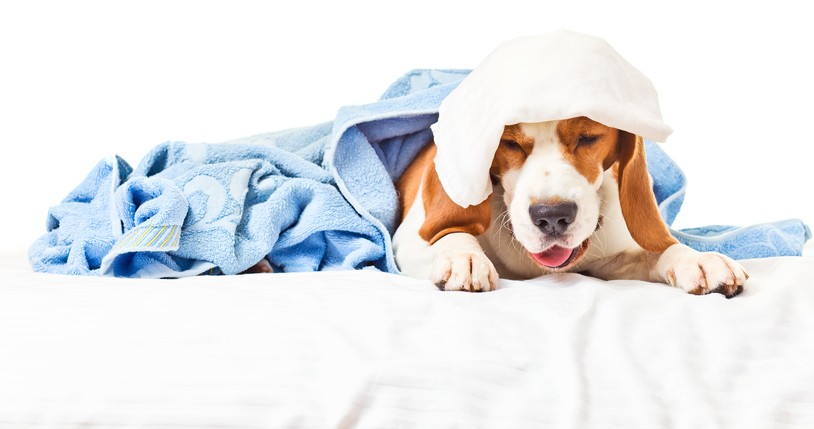
Kennel Cough: What it is and How to Protect Your Pet
If you have a dog, chances are good you’ve heard of kennel cough before. But if you’re a first-time dog parent or it’s been a while since you’ve adopted a new dog, you may not quite know everything you need to about this common canine condition.
Although kennel cough is common, there are some methods you can use to protect your pet against it. In the article below, we’ll walk you through everything you need to know about kennel cough including what it is, what its symptoms look like, and what you can do to help your pet stay healthier. Read on to find out more!
What is Kennel Cough?
Kennel cough is the common name for a condition caused by a variety of bacteria and viruses. The most common cause of kennel cough is a bacteria known as Bordetella.
This type of bacteria infects dogs through contact with each other, shared environments, and shared food dishes. It spreads quickly among close quarters, which makes it common in dogs who have been in kennels or shelters for a while.
What are the Symptoms of Kennel Cough?
There are a few different symptoms that are associated with kennel cough in dogs including coughing, wheezing, reverse sneezing, and lethargy.
Cough
The most common sign of kennel cough in dogs is the cough itself. This cough sounds like a goose honking and worsens when dogs are very active. It may also get worse right after the dog eats. Coughing fits are common and may last a while with this condition.
Wheezing
Wheezing may occur along with coughing, although the goose honk cough associated with kennel cough also sounds a bit like wheezing itself. If your dog is wheezing without other symptoms on this list, go to the veterinarian, as they may have an airway obstruction. With other symptoms listed here, however, the cause could be kennel cough.
Reverse sneezing
Reverse sneezing sounds like a dog that cannot breathe, but it is not a very concerning symptom. It is simply a sneeze that is moving air in instead of out. Reverse sneezing episodes may last a little while and may be aggravated by frequent activity.
Lethargy
Some dogs may become lethargic or mildly feverish with kennel cough, although fever is much less common than other symptoms listed here. Dogs may be weakened by the illness and may not feel much like staying active while they are sick.
What are the Treatments for Kennel Cough?
Your veterinarian could recommend any of these treatments once your dog is diagnosed with kennel cough.
Antibiotics
Although some types of kennel cough are caused by viruses, which cannot be treated with antibiotics, most vets will prescribe a round of antibiotics to any dog with kennel cough. This practice is done to help prevent the risk of secondary infections and to treat any bacteria that might be causing additional kennel cough symptoms. Your vet will give you all the information you need about your dog’s antibiotics including when to give them, how much to give, and whether your pet needs food with their medication.
Steroids
Steroids are not typically given for kennel cough. However, in very extreme circumstances and in dogs with compromised immune systems, steroids may help the dog’s body fight off the infection and reduce the risk of serious symptoms at the same time. If your dog is given steroids, your vet will explain how to give them and what to expect from your pet while taking them.
Rest and Fluids
Most of the time, kennel cough will go away on its own without the help of any medication. If your dog has kennel cough and is relatively healthy otherwise, they may simply need to take it easy and drink plenty of fluids for a couple of weeks—just like a human with a regular cold might.
How Can you Prevent Kennel Cough in Your Dog?
It is best to prevent kennel cough from even happening so your dog continues to say healthy.
Vaccinations
Vaccinations are given to puppies as young as a few weeks old to help prevent kennel cough. These vaccinations cover canine parainfluenza, canine coronavirus, and Bordetella, all of which are the most common potential causes of kennel cough in dogs. These vaccines should be given annually after the initial round of puppy shots.
Avoiding Kennels
Keep your dog away from kennels and boarding facilities whenever possible. If you do need to use one, choose a facility that is strict about requiring health checks and background information.
Conclusion
As you can see, kennel cough is not typically fatal or risky for most dogs, except those with compromised immune systems. However, it can be a difficult illness to recover from and may last several weeks, making your dog feel under the weather for a while.
By taking the time to have your dog vaccinated against kennel cough and ensure they don’t stay in kennels that do not require health checks, you can reduce the risk of this condition for them significantly. And if your dog does contact kennel cough, be sure to follow your vet’s advice about treating them throughout their recovery.
Do you have questions about your dog’s care or want to talk with a vet about kennel cough? Use the online form to book an appointment with your Boston Veterinary Clinic vet today!